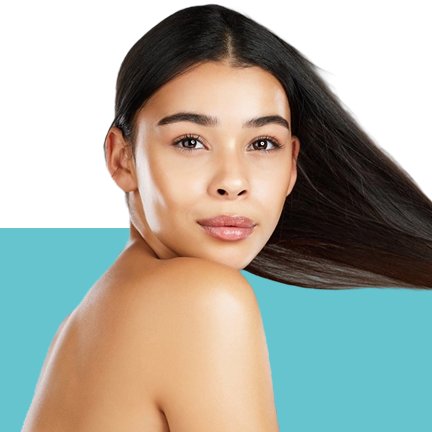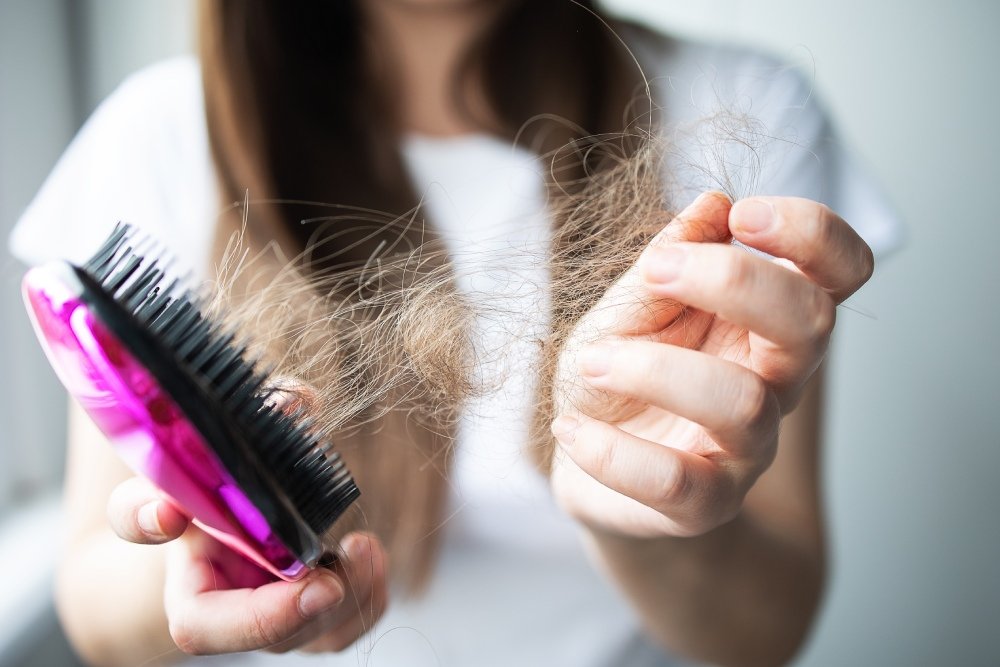
Hair loss can be a frustrating experience, one that often leaves people wondering, “Why is this happening to me?” While genetics, stress, and hormonal changes can play a role, one of the most overlooked factors is vitamin deficiency. If you’ve been asking yourself, “Which vitamin deficiency causes hair loss?”, you’re in the right place. At The Klarity, we’re breaking down which vitamins are crucial for healthy hair growth and how to restore your hair’s strength and shine naturally.
Understanding the Link Between Vitamins and Hair Health
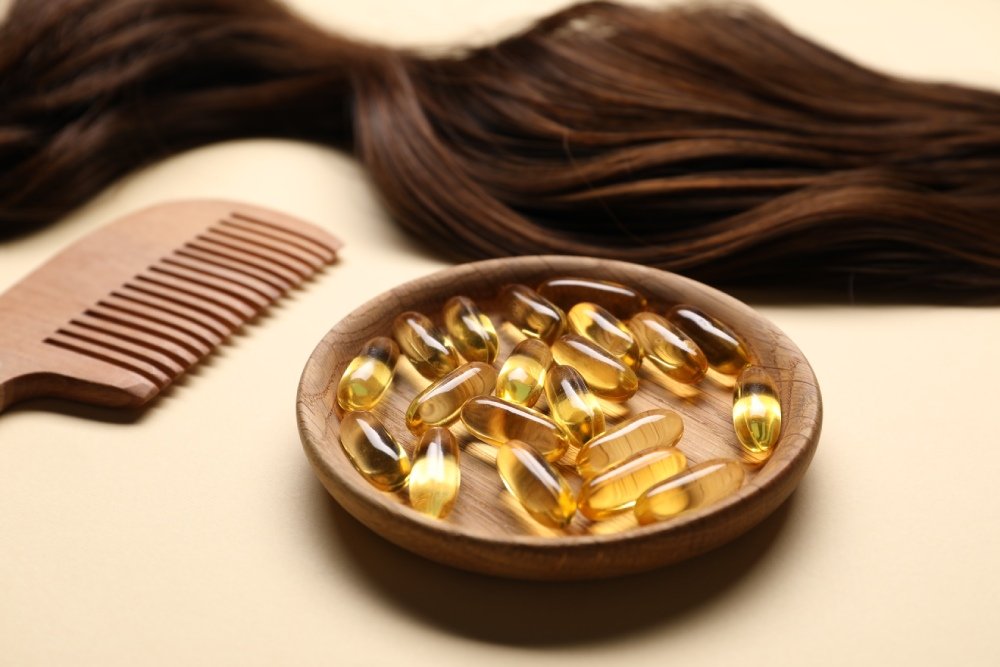
Your hair follicles are among the most active cells in your body. They need a consistent supply of essential nutrients to grow strong, healthy strands. A lack of certain vitamins can weaken hair follicles, slow growth, and even trigger premature shedding. Identifying which vitamin is good for hair and ensuring you’re getting enough of it can make all the difference in reducing hair fall.
Let’s look at the key vitamins for hair growth and how deficiencies can cause hair loss.
Among the top causes of hair thinning and alopecia is vitamin D deficiency. Vitamin D plays a vital role in creating new hair follicles and maintaining existing ones. When your body lacks this nutrient, hair growth can slow down, and shedding may increase.
Symptoms of Vitamin D deficiency:
- Thinning hair or bald patches
- Fatigue and low immunity
- Mood changes, especially depression
Expert Tip from The Klarity:
Spend 15–20 minutes in sunlight daily and include vitamin D-rich foods such as fatty fish, egg yolks, and fortified dairy products. If you still struggle with low levels, vitamin tablets for hair loss that contain vitamin D can help restore balance.
Iron helps red blood cells carry oxygen to your cells, including hair follicles. Without enough iron, the follicles receive less oxygen, leading to dull, brittle hair and shedding. This type of hair loss, known as telogen effluvium, is particularly common among women.
Foods rich in iron:
Spinach, lentils, red meat, and pumpkin seeds. Pairing these foods with vitamin C (like citrus fruits) enhances iron absorption.
Klarity Tip:
If your hair loss is accompanied by fatigue and pale skin, it’s worth getting your iron levels checked.
When people ask, “Which vitamin is good for hair?”, biotin is often the first answer. Biotin (vitamin B7) supports keratin production, the protein that makes up your hair, skin, and nails.
Signs of biotin deficiency:
- Hair thinning
- Brittle nails
- Dry skin
Expert Tip:
Include eggs, nuts, and whole grains in your diet. For those looking for quick results, biotin-based vitamin tablets for hair loss can strengthen the hair shaft and reduce breakage.
Vitamin B12 keeps your red blood cells healthy, ensuring adequate oxygen reaches the scalp and follicles. A deficiency can make hair weak, dull, and more prone to falling out.
Vegetarians and vegans are more likely to have low B12 levels since it’s found mainly in animal products like meat, fish, and dairy.
Klarity Advice:
If you follow a plant-based diet, consider fortified foods or B12 supplements to maintain healthy hair growth.
While vitamins get the spotlight, minerals like zinc also play a key role in repairing hair tissue and keeping oil glands around follicles functioning properly. Similarly, vitamin E acts as a powerful antioxidant that reduces scalp inflammation and oxidative stress, both of which contribute to hair loss.
Expert Tip:
Add foods like avocados, almonds, sunflower seeds, and seafood to your meals. These are packed with vitamins needed for hair growth and scalp nourishment.
Vitamin A helps produce sebum, the natural oil that keeps your scalp moisturized. However, too much vitamin A can have the opposite effect and cause hair fall.
Moderation is key:
Include carrots, sweet potatoes, and spinach in your diet, all excellent sources of vitamin A, but avoid over-supplementation.
How to Choose the Right Vitamins for Hair Growth
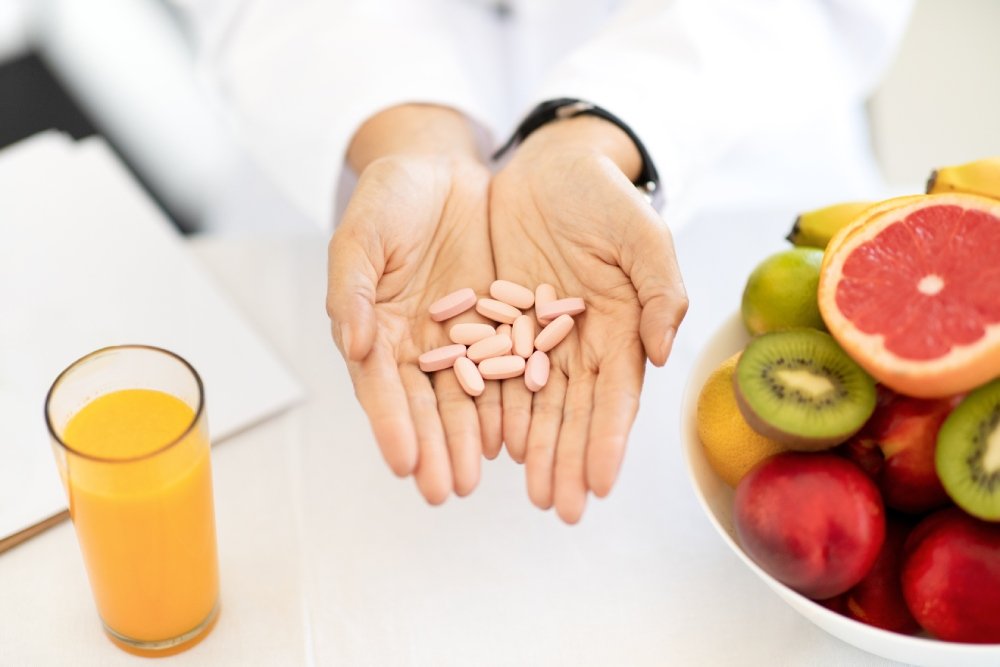
When selecting vitamins to stop hair fall, always choose high-quality formulations backed by science. The Klarity recommends supplements that combine essential vitamins like D, B7 (biotin), B12, iron, zinc, and vitamin E. These synergize to boost follicle strength and promote healthier, thicker hair.
Klarity Expert Tip:
Before starting any supplement routine, it’s best to consult a healthcare professional. Blood tests can reveal which deficiencies are affecting your hair, allowing for a targeted treatment plan.
Final Thoughts: Nourish Your Hair from Within
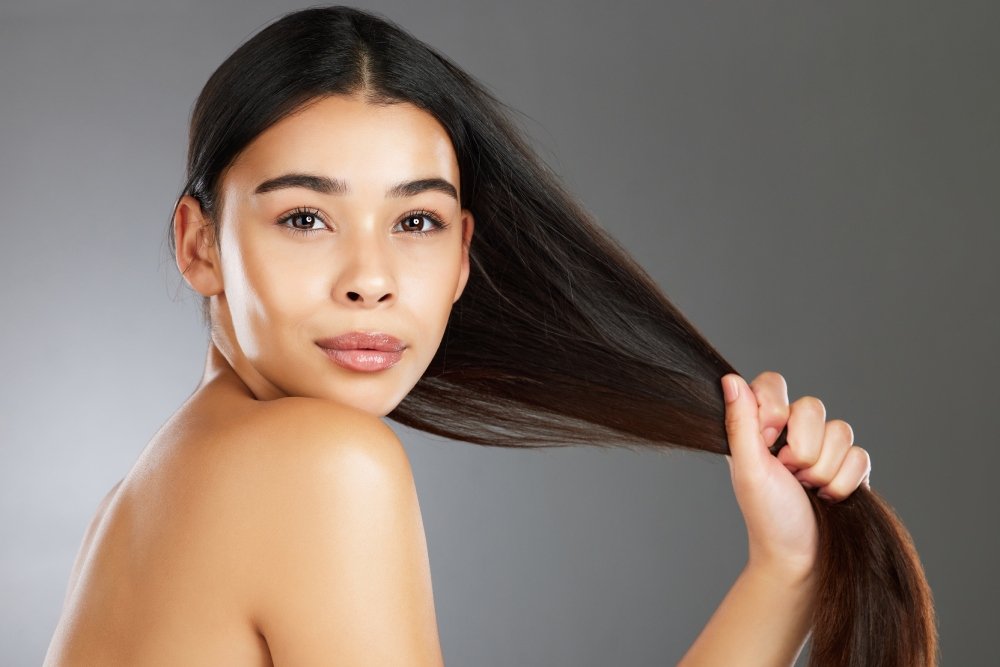
So, which vitamin deficiency causes hair loss? The answer is that multiple deficiencies, especially vitamin D, iron, biotin, and B12, can contribute to thinning hair. The good news is that with the right nutrition and expert guidance, hair loss caused by vitamin deficiency can often be reversed.
When to Consider Advanced Treatments for Hair Loss
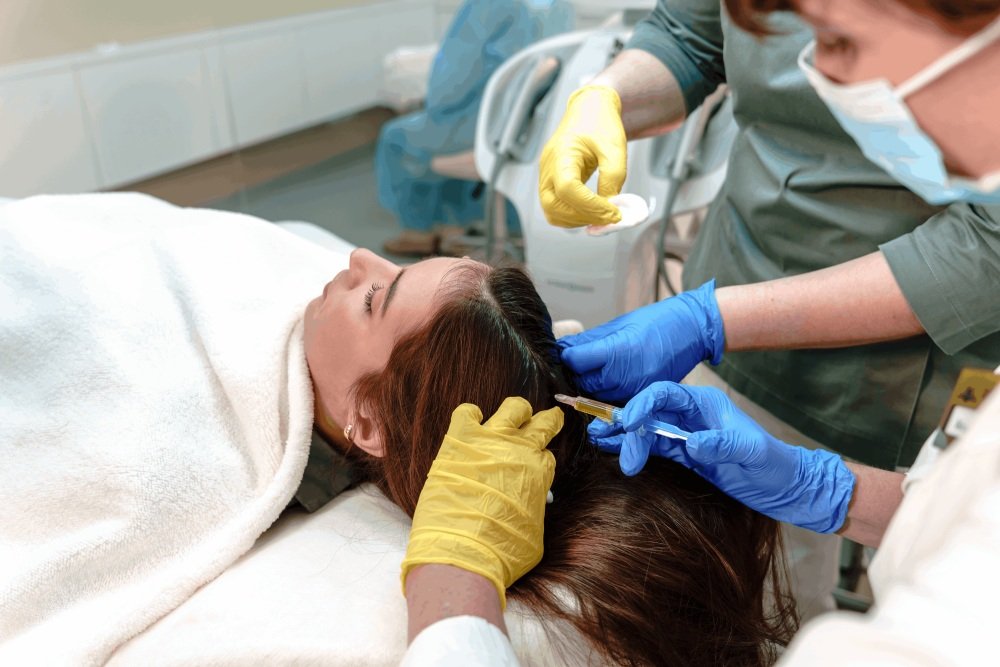
While correcting vitamin deficiencies can significantly improve hair health in many cases, some individuals may experience hair loss that progresses beyond what nutrition and supplements alone can reverse.
Before opting for any surgical or invasive measures, there are highly effective non-surgical treatments worth exploring, such as Hair Mesotherapy and PRP (Platelet-Rich Plasma) Therapy.
Hair Mesotherapy involves injecting a customized blend of vitamins, minerals, and growth factors directly into the scalp to stimulate dormant follicles and enhance blood circulation. It is particularly beneficial for hair loss caused by nutritional deficiencies, helping restore scalp health and promote natural regrowth.
PRP Therapy, on the other hand, utilizes your own platelet-rich plasma to repair damaged follicles and encourage new hair growth. This regenerative approach strengthens hair follicles, improves density, and delivers visible results without surgery.
At The Klarity, we typically recommend starting with Hair Mesotherapy and PRP Therapy for individuals experiencing thinning or weakened hair. These treatments effectively target the underlying causes, improve scalp condition, and provide a strong foundation for natural hair regrowth.
Expert Tip from The Klarity:
Even after treatments like PRP and Mesotherapy, maintaining proper nutrition remains essential. A diet rich in vitamin D, biotin, B12, zinc, and iron supports both treated and natural hair, keeping it healthy and strong.
For those striving to regain confidence after hair loss, combining professional treatments such as PRP and Hair Mesotherapy with a nutrient-rich diet, targeted supplements, and healthy lifestyle practices offers the best, most sustainable results.
At The Klarity, we believe in empowering you with the knowledge to make informed choices. Whether you’re optimizing your diet, exploring advanced therapies like PRP and Mesotherapy, or looking to strengthen overall hair health, your journey to thicker, healthier hair begins with understanding your body’s unique needs. Book your consultation with The Klarity today and take the first step toward revitalized, confident hair.
